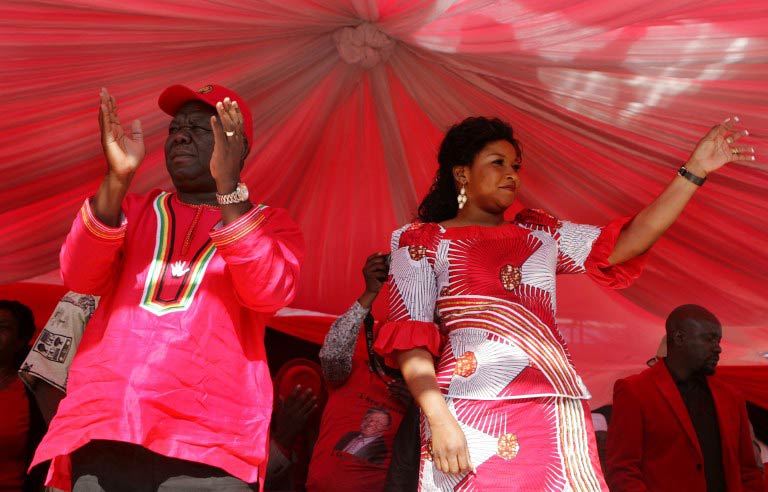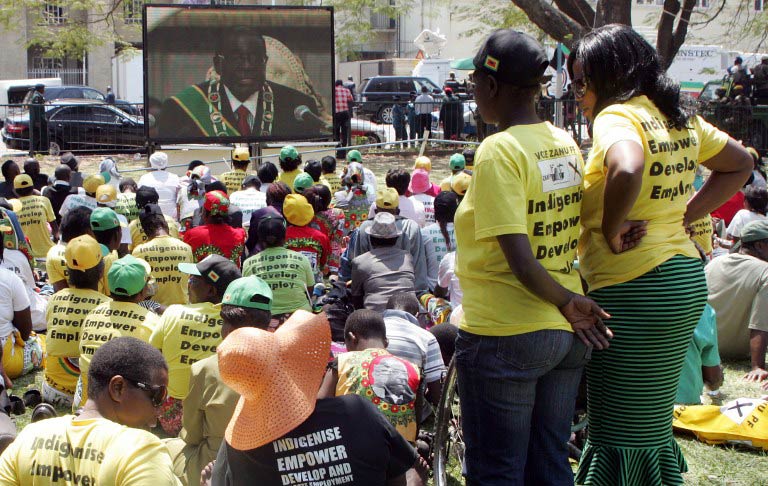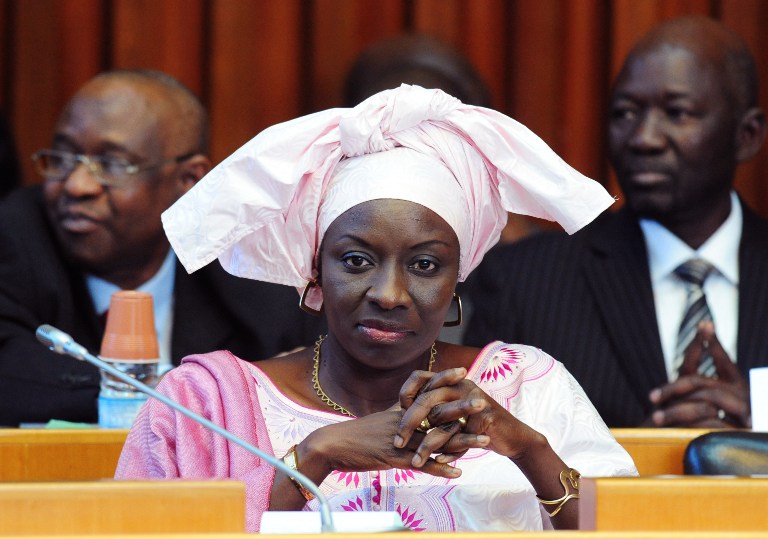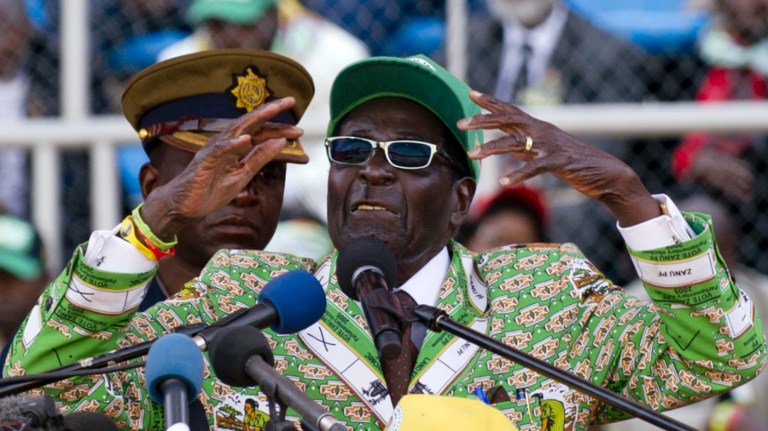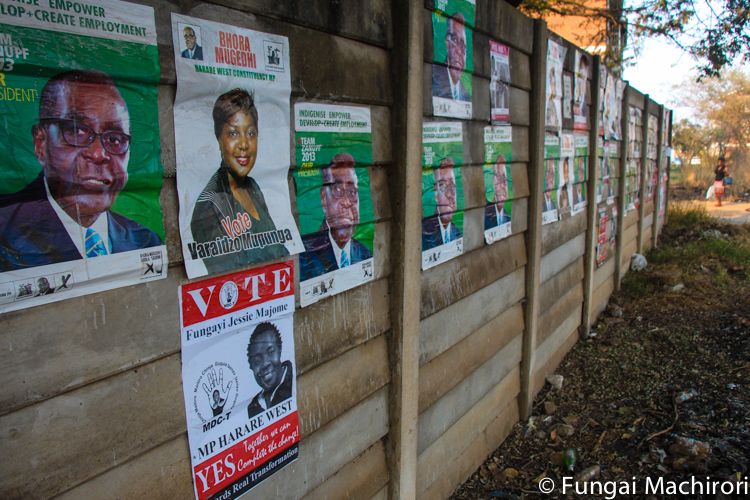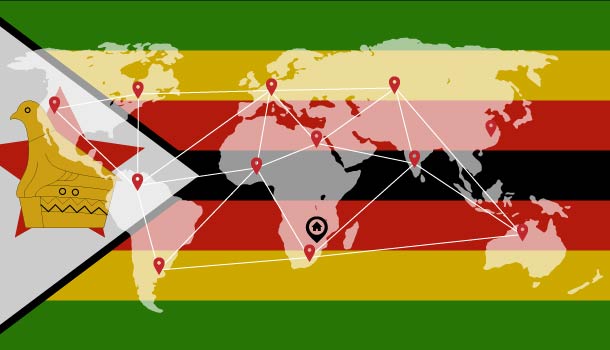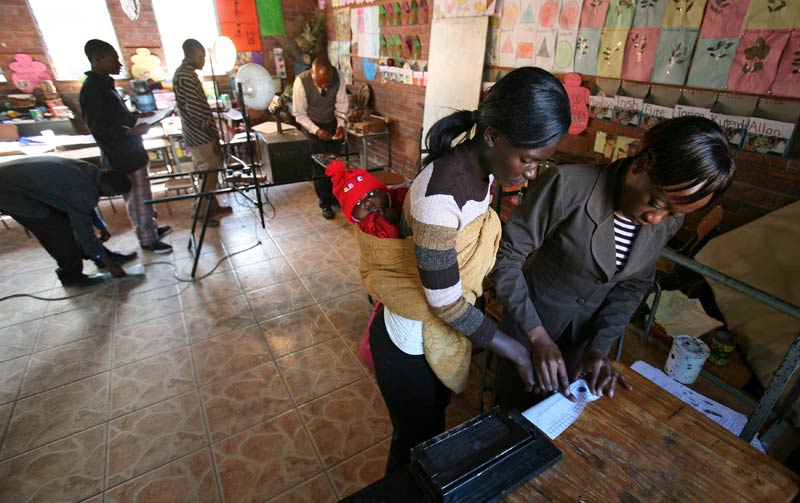We are just past the first weekend of 2014 and here in Zimbabwe, newspaper stands are already brimming with tabloid-style headlines of scandalous news – of the penile sort – to do with former prime minister Morgan Tsvangirai and miracle-working Pentecostal prophet, Emmanuel Makandiwa.
Yesterday, Zimbabwe’s news media revealed that Makandiwa, founder of the increasingly popular United Family International Church (UFIC), had performed a penis-enhancing miracle on a man from Namibia at a New Year’s Day service in Harare. The man is reported to have travelled to Zimbabwe in search of help for his penis which he is quoted as saying was the size of a two-year-old’s. He added that the problem was affecting his love life, and therefore his prospects of finding a wife.
“First month grow, second month grow, third month grow, fourth month grow, fifth month ummm stop,” Makandiwa is said to have commanded the man’s infantile penis which, I must assume, is still expanding exponentially as you read this.
On Saturday, the day before this revelation, the press was again teeming with phallic-related news; in this instance, an exposé of trouble in the un-paradise that is Tsvangirai’s love life. Apparently he and his current wife, Elizabeth Macheka, are living separately due to a range of unresolved issues, including those of the “sensitive personal” variety. The public jury is out and judgments ranging from erectile dysfunctional disorder to hexes over the former PM’s “male member” are moving around freely. Tsvangirai has, however, refuted any such claims, stating that he is fit on all counts.

Ironically, reports suggest Macheka packed up and left the marriage home during a visit Tsvangirai made to seek the counsel of Nigerian megastar prophet TB Joshua, who in 2012 gained cred for his prediction of the death of Malawian leader Bingu wa Mutharika. Well, let’s say he predicted the death of an African leader who was old and unwell, to the silent hopes of many.
And so we, the general Zimbabwean populace, find ourselves having spirited Twitter, Facebook and offline debates, enthralled by speculation about two men’s penises. Actually, make that three men as people are now also seemingly curious about how endowed Makandiwa must be if he can work such miracles on others.
A weekend victory for phallicism, I say. And, I fear, a portent of what is to come in 2014 for Zimbabwe.
As prospects for political change continue to decline, it is the rise of Pentecostalism and tales of the supernatural that seem to have filled the void in the collective imagination of most Zimbabweans. In fact, the myriad problems ordinary Zimbabweans face – such as crippling poverty and lack of access to social amenities – seem to correlate with the growth and popularity of charismatic Christian churches offering instant relief from anything from bankruptcy and HIV to unhealthy addictions… if you only just believe.
Early last year former Reserve Bank governor Gideon Gono convened a press conference with Makandiwa and his fellow popular prophet, Uebert Angel, to publicly announce that the two men had not flouted any financial regulations by delivering ‘miracle money’ said to have inexplicably appeared in congregants’ personal bank accounts. And with that controversial move, the already blurred line between the church and the state in Zimbabwe grew murkier.
While a penis-enlarging miracle might seem like child’s play (that pun was really not intended!) for a man of such influence, a man who has even promised to perform the Christ-like feat of walking on water, it does epitomise the vulnerability of so many Zimbabweans who remain desperate for a change in their personal fortunes. Desperate for hope; for at least one pleasure, one relief.
And the commonality of the desperation is compounded by Tsvangirai’s pursuit of the same from TB Joshua.
Just think about Tsvangirai’s case a bit more deeply, if you will. Here is a man, aged 61, married as many times as he has lost in his bid to become Zimbabwe’s elected president (three), who makes a trek to a death-predicting spiritual leader in pursuit of answers and solutions to the problems beleaguering his personal and political aspirations. In a continuation of the comedy of errors that is his love life, he returns home to find his wife gone and, a few weeks later, speculations about his impotence all over the media.
What hope should the ordinary Zimbabwean hold onto, therefore?
Tsvangirai’s manhood may have come under literal scrutiny this weekend, but the truth is that it has been inspected – in a figurative sense – since July’s presidential election and his tepid response to a resounding loss, albeit a loss that seems to have been compounded by many factors out of his control. More and more, Zimbabweans are beginning to feel that he is not the man to deliver them to the ‘promised land’, and that he himself needs to start chanting his MDC-T party’s slogan of chinja maitiro (change your ways) and step away from its leadership.
I will end my analysis with a final irony. It is quite interesting to me that even though much of Zimbabwe’s mainstream press is alight with all these stories about phalluses, few – if any – can bring themselves from the comfort of their euphemisms to actually call the “male member” what it is. A penis.
And this is a perfect metaphor of the times. A fascination with the scandalous and supernatural and yet an inability, a systematised reserve or fear, of calling things as they are. A diversion of the “male member” at the expense of critical, constructive and progressive debate about the male members of society who still very much control the structures that govern our daily lives from the radical prophets to the un-radical politicians.
It should strike us all as unusual that a phallocentric culture cannot bring itself to name the symbols upon which its power is premised.
Indeed, this is the present tragedy of Zimbabwe.
Fungai Machirori is a blogger, editor, poet and researcher. She runs Zimbabwe’s first web-based platform for women, Her Zimbabwe, and is an advocate for using social media for consciousness-building among Zimbabweans. Connect with her on Twitter.
